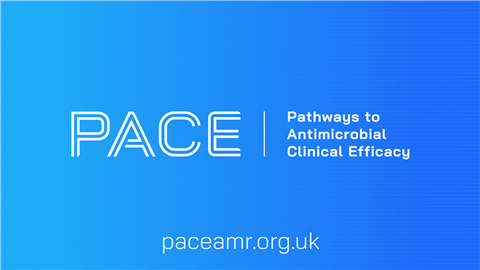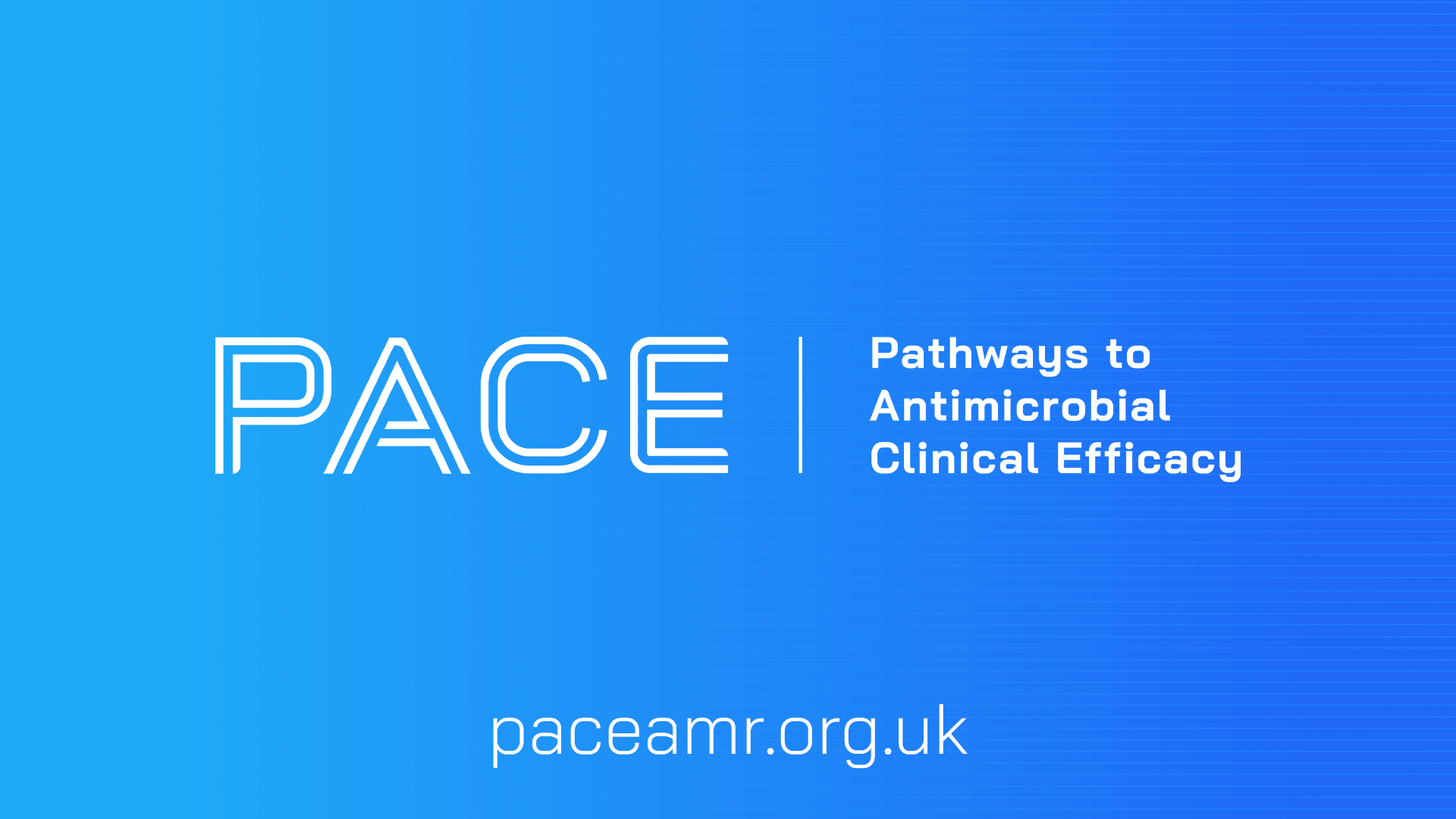 Reviewed
Reviewed
Pioneering partnership supports early-stage innovation against antimicrobial resistance to save lives
 Reviewed
Reviewed
Innovate UK, LifeArc, and Medicines Discovery Catapult (MDC) have joined forces to create PACE (Pathways to Antimicrobial Clinical Efficacy), a £30 million initiative supporting early-stage innovation against antimicrobial resistance (AMR) to save lives. PACE has today (19 October 2023) announced its first funding call with up to £10 million available to support innovators developing new antimicrobials.

Image Credit: PACE Partners
As the UK's largest public-private initiative targeting early-stage antimicrobial drug and diagnostic discovery, PACE will select, invest in and support projects that address the world's most threatening pathogens. It will deliver innovations for onward development and investment, moving them closer to clinical trials. By tackling this problem collectively, with a pandemic-style focus, the early translational science community will be supported to deliver the breakthroughs needed.
AMR is one of the top ten global health threats. By 2050, as many as ten million people could die each year as a result of AMR, more than the population of London. The economic impact is also vast. The World Bank predicts that from 2015 to 2050, the cost of AMR will be 3.5 billion USD per year on healthcare alone.
AMR is complex. Bacteria and other microbes are evolving to become resistant to treatment, driven in large part by our overuse and misuse of antibiotics. There are not enough current drugs, or drugs in development, to stay ahead of these resistant infections. Half of the antibiotics prescribed today were discovered in the 1950s, with only one new class discovered since the 1980s. There is an urgent need to grow a pipeline of new antimicrobial tests and treatments.
New approaches are needed to combat AMR. PACE will apply vital learning from other disease areas such as cancer and COVID-19, to the problem, where diagnosis and treatment have been transformed in recent years. It will provide wrap-around support for a diverse range of funded projects with the most transformational potential – from targeted treatments to rapid diagnostics and other innovative developments being driven by the community.
PACE is a collaboration between three leaders in the UK's health innovation and research community. It harnesses their unique expertise – catalyzing and working with the global AMR community to accelerate the speed of innovation to mitigate the risk of AMR. PACE will bring together the right funding, resources, and partnerships to help innovators progress their early-stage antimicrobial drug and diagnostics projects with greater speed, support and confidence – giving the best AMR innovations the greatest chance of success.
Progress through PACE will mean our science community will be better supported, and the UK can contribute towards a more robust pipeline of tests and treatments, cementing its place as a global leader in life sciences, and ultimately contributing to better patient outcomes.
Minister of State at the Department for Science, Innovation and Technology, George Freeman MP said:
“The rise of antibiotic resistance – creating a new generation of pathogens that can resist antimicrobial drugs – is one of the biggest threats to modern medicine, and human health, today. It is a global health timebomb: an invisible pandemic with the potential to leave mankind exposed to a new generation of superbugs we cannot treat with antibiotics.
“A whole range of infections that are easily treatable today, claimed scores of lives before penicillin was isolated in the 1940s, and we risk falling back into that dark age unless we can stay one step ahead in the race against drug resistant microbes.
“That is why this £30 million research funding for this work such as this is vital: bringing the brightest minds from industry, academia and the third sector together to tackle one of the great medical challenges of our age. Our life scientists did it in Covid. Now we need to do it again with AMR.”
Professor Dame Sally Davies, UK Special Envoy on Antimicrobial Resistance, said:
“I have always been clear that antimicrobial resistance is one the most severe global health threats that we face globally. Drug-resistant bacterial infections already kill 1.27 million people a year, and experts predict that AMR could kill over 10 million people a year as soon as 2050. I firmly believe that the development of new effective, affordable and equitably accessible antibiotics and rapid diagnostics is not just a medical necessity but a global imperative.
“I am delighted that through PACE, Medicines Discovery Catapult, Life Arc and Innovate UK will give our science community greater ability to break down the technical, financial and regulatory barriers that have prevented the breakthroughs that our modern medical systems rely on.”
Through PACE, we're working to address the serious health challenge of AMR. The collaboration between Innovate UK, LifeArc and Medicines Discovery Catapult represents our united response – a call to bring together researchers, SMEs, and experts all within our world-class capabilities at the Medicines Discovery Catapult.
By bringing together the innovation ecosystem, offering funding opportunities, and promoting collaboration, PACE aims to reshape the trajectory of AMR. Our goal is to help protect public health and strengthen the UK life sciences sector.”
Indro Mukerjee, CEO, Innovate UK
Stéphane Maikovsky, Interim CEO at LifeArc, said:
Antimicrobial Resistance is a growing and serious problem for which we need to develop solutions urgently. Not only are millions of lives at risk, but with potential impacts on the cost of healthcare and people's ability to work, it could force even more people into poverty, with low- and middle- income countries most at risk.
“PACE is part of LifeArc's wider commitment to address challenges in global health. It will bring together the brightest and best in the UK life sciences sector to help tackle this rising threat to global health."
Professor Chris Molloy, CEO of Medicines Discovery Catapult, said:
"Medicines Discovery Catapult reshapes drug discovery for patient benefit. PACE is another great example of a Catapult in action. We bring R&D communities together in active, focused programmes that target high-risk areas of patient need. PACE enables us to surround AMR innovators with the best advice and resources and support them in this vital battle. With our partners and collaborators in PACE, we will build a new pipeline of precision therapeutics and rapid diagnostics that will save lives.”
Jonathan Pearce, CEO, Antibiotic Research UK, said:
“The PACE funding initiative is a major step forward in tackling the current AMR crisis and will help accelerate research and discovery in the UK. Antibiotic Research UK’s patients and researchers will all be delighted at the news, and as a leading charity in the field of AMR we look forward to continuing to collaborate with Innovate UK, LifeArc and Medicines Discovery Catapult to ensure a strong patient perspective is included in the programme.”
Dr Ron Daniels, Founder and Joint CEO, UK Sepsis Trust, said:
"Antimicrobial resistance is likely a more immediate existential threat to humankind than climate change – rather than a perceived threat for the future, AMR is harming patients in NHS hospitals today. Without effective antimicrobials, treatment of sepsis will be futile, meaning that 49 million people around the world each year will die of complications of untreatable infection. The UK Sepsis Trust is committed to preventing avoidable harm from sepsis: that's why we are working with and fully support the PACE programme."
Dr Paula Sommer, Head of Research at Cystic Fibrosis Trust, said:
“We urgently need new and novel ways to treat infections that have become resistant to medicines. People with cystic fibrosis can be particularly susceptible to developing serious lung infections that are difficult to treat so we're very excited that this new initiative – known as PACE – is set to make a significant difference in addressing this much-needed area of research.”
Medicines Discovery Catapult (MDC)
Posted in: Disease/Infection News | Healthcare News
Tags: Antibiotic, Antibiotic Resistance, Antimicrobial Drug, Antimicrobial Resistance, Bacteria, Cancer, Charity, Climate Change, covid-19, Cystic Fibrosis, Diagnostic, Diagnostics, Drug Discovery, Drugs, Efficacy, Fibrosis, Global Health, Healthcare, Medicine, Pandemic, Penicillin, Poverty, Public Health, Research, Sepsis, Technology, Therapeutics, Webinar





